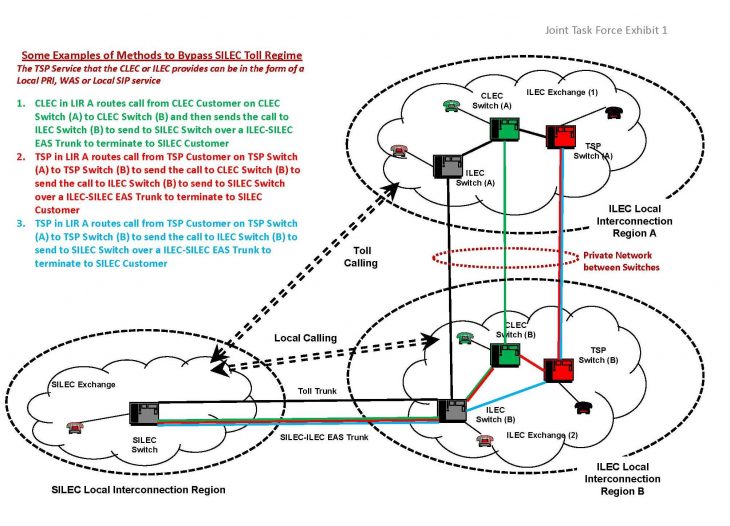
GATINEAU – Rogers Communications says the cost and effort required to implement equal access for a wireless CLECs is not worth imposing a similar regulatory requirement on other wireless service providers (WSPs).
Speaking during the second day of the CRTC’s hearing into the interconnection regimes, Rogers VP of regulatory telecommunications David Watt said it’s time for the Commission to allow WSPs to connect to local exchange carriers (LECs) on a shared-basis and benefit from bill and keep, yet not be required to implement equal access for long distance services.
This would constitute a fourth way for WSPs to connect to LECs, noted Rogers. The other three are: become a wireless CLEC, connect through a CLEC or use the wireless access service tariff.
“This new option will permit any WSP to interconnect with LECs within [a local interconnection region] on a shared-cost basis with bill and keep, without having the obligation to provide equal access,” Watt stated in his opening remarks. “Moreover, imposing equal access on WSPs could lead to higher prices as the costs of implementation would have to be recovered from the base of subscribers.”
Under questioning from CRTC chairman Konrad von Finckenstein, Watt acknowledged that technically, equal access LD on wireless can be done, but the problem revolves around the costs to maintain the information and IT systems to be able to offer equal access LD. And this for about 1% of its total long distance voice traffic, he added.
Watt explained that in order to deal with Rogers’ 5,000 price plans, the IS/IT systems have to be able to “suppress the billing to the customer when…the customer chooses to go with an alternative supplier.” He described the costs as being “expensive work that has to be done.”
Asked by von Finckenstein if this was one of the main reason why Fido has chosen not to market its equal access feature “with any vigor,” Watt agreed, noting though that it‘s up to the alternative LD providers to market their service to Fido customers. But for Fido to try and attract more LD providers to its network is cost prohibitive, he added.
“If I look at it from Rogers’ perspective, for us to go out and try to encourage more IXCs (inter-exchange carriers) to sign up with Fido on an equal access basis, you’re absolutely right the costs of connecting the person and implementing that in our view based on our experience we would never recover the cost of that exercise,” Watt told the chair.
During its appearance on the first day, Bell Canada said it was opposed to giving WSPs shared-cost interconnection and bill and keep unless they made the investments to become a wireless CLEC. The company noted that it wouldn’t be fair for the wireless carriers who have become CLECs to be “penalized and have the advantages taken away from them on the basis they made the investment and the others didn’t,” said Denis Henry, VP of regulatory, government affairs and public law for Bell Aliant.
Von Finckenstein wondered if it’s time to look at relaxing the rules for WSPs. “We count them as competitors when we make forbearance decisions…so we treat them de facto as competitors yet for interconnection you treat them as customers. I just don’t understand why there is conceptual distinction,” he said.
Henry noted that if a wireless carrier wants to benefit from shared-cost interconnection, bill and keep, then it has to implement equal access.
The chair pressed Bell on the fact that it doesn’t offer equal access LD, yet wants its competitors to if they want to benefit from shared-cost interconnection and bill and keep. “Your customers are happy paying the outrageous long distance charges you have to pay on wireless? I find that hard to believe,” the chair said.
Jonathan Daniels, VP of regulatory law at BCE, explained that standalone wireless rates may not be the best metric to consider. “We believe they’re competitive in the market and there’s many different alternatives,” he said referring to packages that allow people to make LD calls for inexpensive rates.
The independent ILECs also took the stand on Day 2, requesting, among other things, that the WSPs be forced to interconnect with them in their operating territories. The Canadian Independent Telephone Company Joint Task Force (JTF) said it’s time to end “the free ride” WSPs have enjoyed in small ILEC territories.
“WSPs have always been required to interconnect with the large ILECs’ networks in order to offer their services in ILEC territories. There is no corresponding requirement in SILEC territories,” Robert Olenick, regulatory analyst at Tbaytel said. “At the very least, WSPs should be required to interconnect with the SILECs.” (see the JTF's exhibit below).
IP TO IP INTERCONNECTION was also raised during the second day of hearings with Bragg Communications suggesting that it be mandated and MTS Allstream offering a hybrid/market evolution approach.
Natalie MacDonald, VP of regulatory affairs at Bragg Communications (EastLink), said contrary to what the incumbent telcos are saying that IP technology is pervasive in the market and the ILECs have yet to begin supporting IP to IP interconnections. “It is not fair that toll, wireless and CLEC service providers must all connect using a technology different from that which forms the core of their operations,” she said in her opening remarks.
For MTS, the concern is largely around making IP interconnection available where it’s offered while leaving the market to move to IP at its own pace.
“What we’re looking for you not to mandate is how quickly or slowly our network evolves,” said Teresa Griffin-Muir, VP of regulatory affairs for MTS. “On the other hand, to the extent there is IP interconnection we would want it to be done on a non-discriminatory basis so that for example, an ILEC could not enter into an interconnection arrangement with another large ILEC and exclude other carriers.”




